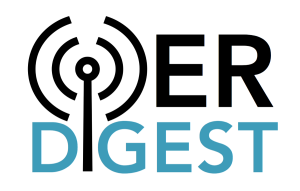What are Open Educational Resources (OER)?
“Open Educational Resources (OER) are learning, teaching and research materials in any format and medium that reside in the public domain or are under copyright that have been released under an open license, that permit no-cost access, re-use, re-purpose, adaptation and redistribution by others.” (Source: UNESCO)
-
Open Education | SPARCLearn more about the philosophy and practices of Open Education.
-
OER Digest
 A bi-weekly newsletter for open education updates, opportunities, and reminders.
A bi-weekly newsletter for open education updates, opportunities, and reminders. -
Digitally Established: Educational Resources in U.S. Higher Education, 2023Nearly two thirds (64%) of U.S. higher education faculty are aware of open educational resources (OER) and nearly one third (29%) require an OER in their course, according to this annual survey of faculty and administrators.
Why Use OER?
Affordability
Key Findings of the 2025 Virginia Course Materials Survey, which included Shenandoah students, highlight troubling connections between the cost of course materials and students’ stress, food insecurity, and difficulty persisting in preferred programs of study.
Student success
Studies link OER use with student success and persistence. Because OER are available to every student from the first day of class, or even earlier, students won’t fall behind while waiting for financial aid funds to clear or for used print books to arrive in the mail.
Unlike access codes or rented textbooks from commercial publishers, access to open textbooks never expires. Once students download the materials, they can keep and refer to them as they move through their programs of study.
Inclusion, Diversity and Equity (IDE)
Providing affordable course materials is a matter of equity. The 2021 Virginia study revealed that negative impacts associated with the cost of course materials were amplified for students who identified additional areas of financial or social concern.
Because traditional textbooks often lack diverse representation—in images, names, examples, terminology, and coverage, many OER creators, publishers, and funding bodies are committed to developing diverse and inclusive OER.
OER also offer increased accessibility through the multimodal presentation of information. Students can use OER texts digitally or print them as needed.
Read more in Leveraging Open Educational Resources to Advance Diversity, Equity, and Inclusion: A Guide for Campus Change Agents (American Association of Colleges and Universities, 2023).
Quality
Many high-quality open textbooks—written by experts in their field, peer-reviewed, and professionally designed—are already available. Flexible licenses empower instructors to customize or revise existing resources quickly. Add the latest research and developments, and keep up with current events.
Ultimately, you are the best judge of which materials are best for your classes. Providing a review can be a great first step toward learning more about the variety and quality of OER in your discipline.

Ways to take advantage of OER
Retain
Make, own, and control copies of the content.
Reuse
Use the content in a wide range of ways.
Revise
Adapt, alter, or update the content.
Remix
Combine the original or revised content with other material to create something new.
Redistribute
Share copies of the original content, your revisions, or your remixes with others.
-
Virginia Syllabus BankA collection of syllabi for courses using OER at Virginia higher education institutions.
